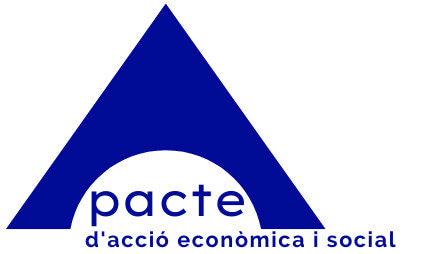
The UK online casino license is a crucial element in ensuring fair play and safety in the digital gaming environment. As the online gambling sector continues to grow, the importance of obtaining a proper license cannot be overstated. This article delves into the intricacies of the UK online casino license, providing essential insights for both operators and players in this vibrant industry. A great example of a reliable platform with a solid license is uk online casino license casino Slotit, which provides a safe and enjoyable gaming experience.
What is the UK Online Casino License?
The UK online casino license is awarded by the UK Gambling Commission (UKGC), the regulatory body responsible for overseeing gambling activities in the United Kingdom. Established under the Gambling Act 2005, the UKGC aims to protect players, promote fair gaming, and prevent crime associated with gambling. An online casino must adhere to various guidelines and regulations set forth by the UKGC to obtain and maintain its license. This ensures that players are offered a secure and fair gambling experience.
Why is a UK Online Casino License Important?
Having a UK online casino license is vital for several reasons:
- Player Protection: The license ensures that operators adhere to strict guidelines that protect players from fraud, addiction, and exploitation. Players can gamble with peace of mind knowing that the casino is monitored and regulated.
- Fair Play: All licensed online casinos must utilize random number generators (RNGs) and undergo regular audits to guarantee fair outcomes. This transparency builds trust between players and operators.
- Legal Compliance: Operating without a proper license can lead to severe legal consequences for both the casino and its players. A UK license ensures that both parties are complying with the law.
- Responsible Gambling: Licensed casinos are required to promote responsible gambling practices, offering tools and resources for players to manage their gambling habits effectively.
How to Obtain a UK Online Casino License
Operators aiming to launch an online casino in the UK must go through a rigorous application process to obtain a UK online casino license. Here’s a general outline of the steps involved:
- Application Submission: The operator must submit an application form along with detailed information about the business structure, financial history, and the individuals involved in the operation.
- Background Checks: The UKGC conducts thorough background checks on the key personnel, including directors and shareholders, to ensure they meet the industry’s integrity standards.
- Financial Assessment: Operators must demonstrate financial stability and provide evidence of availability of funds to cover ongoing operational costs and payouts to players.
- Compliance with Technical Standards: All gaming software and systems must comply with technical standards set by the UKGC. This includes RNG testing, software audits, and game fairness assessments.
- Implementation of Responsible Gambling Measures: Operators must outline their responsible gambling policies and provide tools to help players gamble safely.
Costs Involved in Obtaining a UK Online Casino License
The cost of obtaining a UK online casino license can vary based on several factors, including the scale of operations and the type of license being sought. Typically, the costs include:
- Application Fee: The initial application fee varies depending on the type of license and can range from £2,000 to £20,000.
- Annual License Fee: Once the license is granted, operators must pay an annual fee, which varies based on the revenue of the casino.
- Compliance Costs: Additional costs may arise from ensuring compliance with technical standards, including third-party audits and software testing.
Types of Online Gambling Licenses in the UK

In the UK, there are different types of licenses that operators can apply for, depending on the services they plan to offer:
- Operating License: This is required for companies that wish to provide gambling services. It covers various gambling activities, such as online casinos and sports betting.
- Personal Management License: Individuals who manage or control gambling operations must obtain this license.
- Remote Gambling and Software License: This is necessary for businesses that develop gambling software or provide remote gambling services.
The Role of Responsible Gambling in Online Casinos
Responsible gambling is a fundamental aspect of the UK online casino license. The UKGC mandates that all licensed operators implement measures that promote responsible gambling. These measures include:
- Self-Exclusion Tools: Players can set limits on their gambling activity or opt to exclude themselves from gambling entirely for specific periods.
- Information and Support: Casinos must provide players with information about responsible gambling practices and resources for those who may need help with gambling addiction.
- Monitoring Player Behavior: Operators are required to monitor player behavior and intervene when patterns suggest potential gambling problems.
Challenges Faced by UK Online Casinos
While the UK online casino market is thriving, operators face various challenges, including:
- Regulatory Pressures: The UKGC continuously updates its regulations to keep pace with technological advancements and societal changes, placing pressure on operators to remain compliant.
- Market Competition: The online gambling market is highly competitive, leading to increased marketing costs and the need for innovative features to attract players.
- Player Retention: Keeping players engaged and satisfied in a saturated market can be challenging and requires strategic marketing and high-quality customer service.
The Future of UK Online Casino Licensing
As the online gambling industry evolves, the UK online casino licensing framework will likely adapt to new challenges and technologies. With the rise of cryptocurrencies and blockchain technology, there may be changes in how transactions are handled and how operators can engage with players.
Moreover, the increasing focus on responsible gambling and player protection will remain at the forefront of regulatory discussions. The industry will need to embrace innovations while ensuring compliance with stringent regulations to maintain the integrity of the gaming environment.
Conclusion
In conclusion, the UK online casino license serves as a bedrock for ensuring fair, responsible, and safe gambling practices in the digital age. For operators, understanding the regulatory landscape and its implications is crucial to establishing a successful online casino. For players, knowing the significance of a licensed casino enhances their gaming experience, providing assurance of fairness and security. As the industry continues to grow and evolve, staying informed about changes in the licensing framework will be essential for all stakeholders involved.






